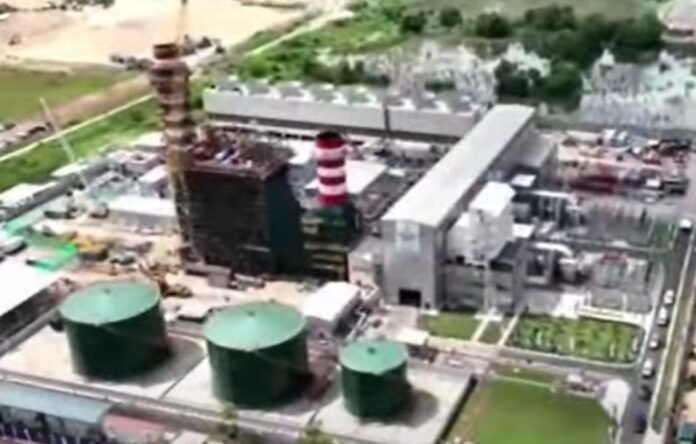By: Staff Writer
November 10, Colombo (LNW): Sri Lanka’s new government has revived plans to develop the Sobadhanavi Combined Cycle Power Plant in Kerawalapitiya, which includes the procurement of Liquefied Natural Gas (LNG) for a Floating Storage Regasification Unit (FSRU) and LNG pipeline.
The new Sri Lankan government is set to reopen the Liquefied Natural Gas (LNG) procurement process to establish a Floating Storage Regasification Unit (FSRU) and an LNG pipeline, a project previously canceled under former President Ranil Wickremesinghe’s administration.
In August 2023, the then Cabinet had suspended the delayed LNG procurement process for the FSRU and pipeline project.
Ceylon Electricity Board (CEB) Spokesman Eng. Dhanushka Parakramasinghe emphasized the critical importance of LNG supply for the country, noting that Sri Lanka has two LNG power plants—Yugadanavi and Sobadhanavi—which could help meet the national power shortfall if LNG is available.
Together, the plants have a total capacity of about 650 MW, but they are currently running on heavy fuel. The recently completed Sobadhanavi plant can only operate with diesel, and Parakramasinghe explained, “We are not operating Sobadhanavi because we cannot afford the diesel costs.”
He underscored the urgency of securing LNG supply to ensure the operation of these plants.
Following the cancellation of the original tender, Petronet LNG, an Indian company, submitted a proposal to supply LNG. However, Parakramasinghe confirmed that the current government would not consider this proposal and would instead move forward with the original tender.
The new Government is compelled to implement the Sobadhanavi Combined Cycle Power Plant in Kerawalapitiya and it will initiate Liquefied Natural Gas (LNG) procurement process for the establishment of a Floating Storage Regasification Unit (FSRU) and an LNG pipeline, which was cancelled by the previous administration led by former President Ranil Wickremesinghe.
The previous government has re-engaged with India’s Petronet LNG Limited, ending a seven-year hiatus, to enhance infrastructure for the Sobadhanavi Plant, designed to significantly bolster Sri Lanka’s electricity supply.
The first phase of the 350 MW plant, commissioned in August 2024, includes a 220 MW gas turbine, which is expected to contribute substantially to the national grid. The second phase, slated for completion in 2025, will add an additional 130 MW via a steam turbine, bringing the total capacity to 350 MW.
The project aims to meet about 12% of the nation’s electricity demand and drive economic growth by providing stable, affordable energy. The Sobadhanavi Power Plant will play a crucial role in reducing energy production costs, supporting industrial growth, and fostering job creation.
Additionally, the previous government has signed a Memorandum of Understanding (MoU) with Petronet to reduce energy costs, promote cleaner energy, and develop a local LNG market.
The move to shift from thermal power to LNG-based solutions is part of Sri Lanka’s long-term strategy to transition to more sustainable energy sources.
The Ceylon Electricity Board (CEB) is finalizing the deal, with LNG supply crucial for meeting the country’s energy demands, particularly as the Yugadanavi and Sobadhanavi plants, both running on heavy fuel, have been unable to operate efficiently due to high diesel costs.
This initiative is poised to establish Sri Lanka’s largest independent power producer and contribute to a greener, more sustainable energy future.

